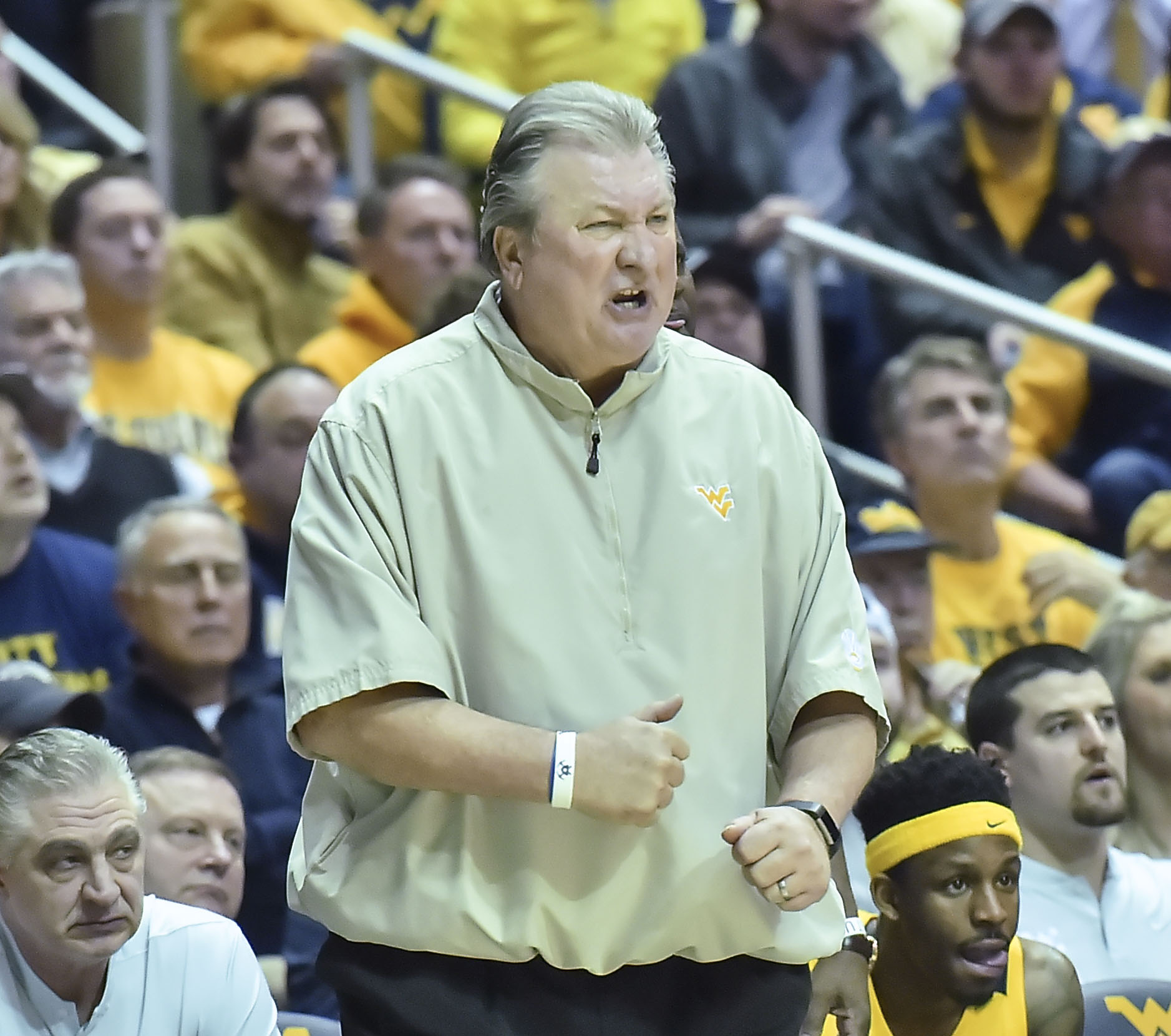MORGANTOWN, W. Va. — In terms of speaking of Bob Huggins’ legacy, sometimes it is worth it to beat a dead horse.
That’s what we’re doing today, because Saturday was graduation day at WVU, albeit not a traditional one due to the COVID-19 pandemic.
Jermaine Haley earned his bachelor’s degree in multidisciplinary studies.
Logan Routt earned his master’s degree in business administration.
Chase Harler is still working on his master’s degree in sport management and is expected to have his course work completed later this summer. Harler previously earned a business degree from WVU.
A year ago at this time, Esa Ahmad earned his degree.
The year before that, Jevon Carter and Daxter Miles Jr. earned their degrees and we can literally go on down through the list of seniors throughout Huggins’ first 13 years at the school and say the same for all of them, except for one.
Last week, the school announced that for a fifth consecutive year, the WVU men’s basketball team finished in the top 10% in its sport with its Academic Progress Rate (APR) score among NCAA teams.
Likely that means the team earned a perfect score of 1,000 — individual scores will be released at a later date — which is what it earned last year and has done the same on multiple occasions under Huggins’ watch.
The question today is simple: When will the sports world allow this to become a part of Huggins’ legacy?
What more does the man have to do to prove that he wasn’t some anti-education and win-at-all-costs kind of coach during his days at Cincinnati?
Huggins has famously analogized his reputation to that of the old westerns, referring to the good cowboys as wearing white hats and the bad dudes as wearing black ones.
Somewhere along the line, Huggins said, he was fitted with a black hat.
It stems from those Cincinnati days in the early 1990s, when the school reported a zero graduation rate from the men’s basketball program for four years.
And the sports world took that at face value and Huggins became an unfortunate villain.
Through the advantage of hindsight, what we know now is the NCAA calculated graduation rates in those days in the same fashion Al Capone calculated his taxes.
Junior-college recruits were not counted, neither were Division I transfers and Huggins built his Bearcats’ program with a foundation of junior-college kids.
A good portion of his players in those days left school early to play pro, which also counted against the grad rate.
Huggins once told the story of how he tried to keep Nick Van Exel enrolled at Cincinnati while he went through the pre-draft workouts, but it got to the point where it became nearly impossible, so they had to withdraw Van Exel from school.
For a moment, let’s fast forward to today’s era of college basketball, where 40% of incoming freshmen transfer to another school before the start of their junior year and then add in the growing number of underclassmen who are leaving school to play in the pros.
Under the old rules, Duke’s graduation rate today would be embarrassing, as would Kentucky’s and just about any other Power 5 school out there.
Were there basketball players at Cincinnati who simply didn’t graduate or had little interest in doing so?
Probably, it would be naive to think otherwise. It would also be naive to think that Cincinnati was ever the lone team in that boat.
Should Huggins have to live with that zero-graduation-rate moniker draped around his neck until his final days?
Not when it’s simply not accurate. WVU assistant coach Erik Martin is a great example.
Martin graduated with a degree in criminal justice from Cincinnati in 1993, but because he came to the school via junior college, he did not count in those days towards the program’s graduation rate.
Yet, those who know Martin recognize him as an upstanding person who benefited greatly from earning a degree from U.C.
But, let’s get back on point.
In typical Huggins’ fashion, he has never once pounced on his program’s academic success at WVU and used it to throw back in the faces of his detractors.
Rather, he has time and again deflected the credit to the academic support team provided by the school.
But when you hear stories of Huggins making players like Derek Culver and Teyvon Myers sign contracts stating certain academic criteria would need to be met in order for them to stay on the team, you realize there is a role Huggins plays, too.
When Harler once approached Huggins with the idea of transferring, Huggins reminded him of how much more valuable a degree, connections and experience from WVU could be worth compared to that of a smaller school.
Put quite simply, it’s about damn time Huggins be afforded the white cowboy hat.
I’m guessing size 7 3/4.
TWEET @bigjax3211




